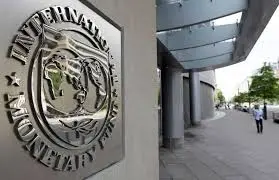Estimated reading time: 2 minutes
In its quarterly World Economic Prospects report, published this Friday, the International Monetary Fund (IMF) kept its growth forecast for the Latin American economy for 2025 stable at 2.5%.
Among the largest countries in the region, the IMF maintains Brazil’s growth forecast of 2.2%, raises Mexico’s growth forecast by one-tenth (1.4%), and expects a strong rebound in the Argentine economy (5.0%) after the 2024 recession.
According to new IMF calculations, Brazil’s economy will slow down after recording robust growth of 3.7% in 2024. The calculations revise the forecast released last October by seven-tenths of a percentage point.
This strong growth last year of the South American giant, supported by domestic consumption, impacted inflation, which closed 2024 at 4.83%, slightly above the ceiling of the target set by the Central Bank.
According to reporters, IMF Managing Director Kristalina Georgieva said that inflation is moderating faster in advanced economies than in emerging economies, noting that Brazil “faced somewhat higher inflation.”
IMF sources acknowledged that the Fund’s main concern regarding the Latin American economy is precisely the inflationary pressure in Brazil, which led the Central Bank to raise interest rates to 12.25% to try to contain prices.
The IMF report raised Mexico’s economic growth forecasts 2025 by one-tenth to 1.4% and kept 2% unchanged for 2026.
In November, the IMF renewed Mexico’s access to the Flexible Credit Line (FCL) of some $35 billion, given the strength of its macroeconomic policies and institutional frameworks for public policies.
However, he indicated that “economic activity is moderating in Mexico, with a slowdown in private consumption and investment, and a decrease in employment growth.”
“Growth is expected to moderate further in 2025, reflecting the withdrawal of fiscal stimulus and a slowdown in the U.S. economy,” the IMF added.
Concerning Argentina, the report foresees a challenging outlook in the short term but with signs of recovery later. According to the new projections, Argentina’s real Gross Domestic Product (GDP) is estimated to fall by 2.8% in 2024, reflecting the persistent contraction of economic activity amid a complex macroeconomic context.
However, from 2025, the IMF forecasts a significant rebound, with growth of 5.0% that would also be maintained in 2026, representing an upward revision of three-tenths for next year. (Dominican Today).



































